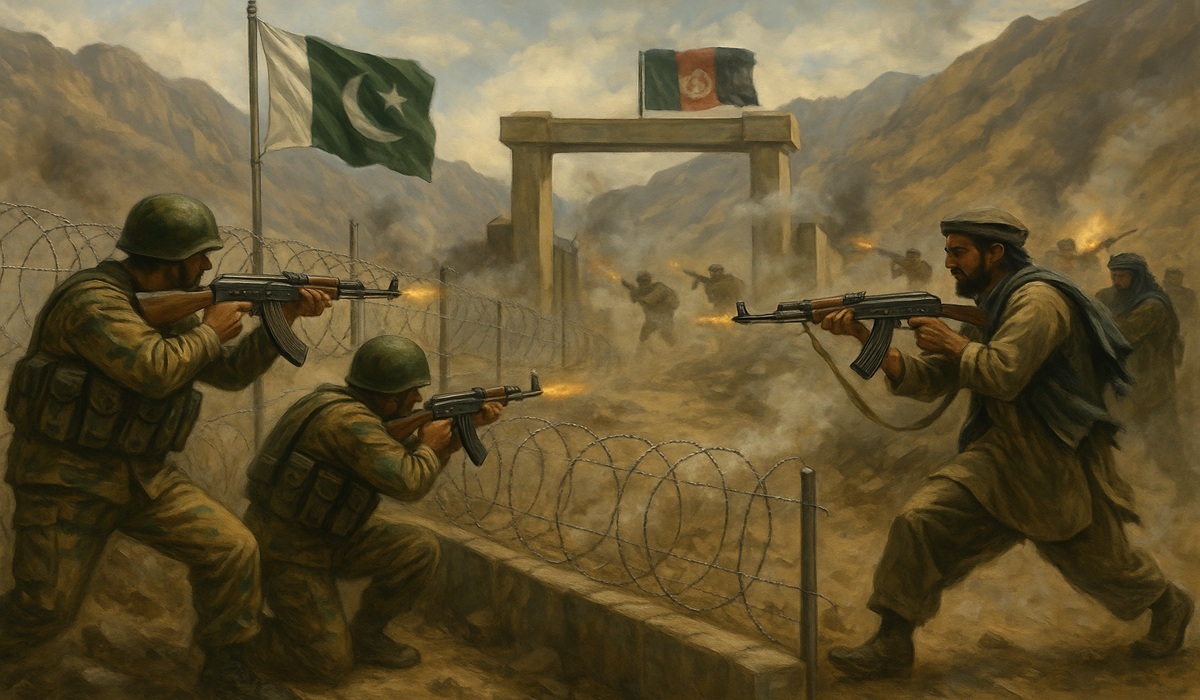Sharm el-Sheikh Accord: Promise or Mirage for Palestinian Sovereignty?
- Bakhtawar Naveed
- Middle East
- Trending News
- October 15, 2025

The Sharm el-Sheikh Peace Accord, signed under international applause, has once again raised hopes for an elusive peace in the Middle East. After decades of bloodshed, displacement, and diplomatic failures—from Oslo to Camp David and the Abraham Accords—this new agreement is being hailed as a “historic breakthrough.” But for those observing from Pakistan and the wider Muslim world, the question remains: will this accord truly pave the way for a sovereign Palestinian state with Al-Quds (Jerusalem) as its capital, or is it another tactical maneuver to preserve Israel’s dominance and pacify global outrage?
From a Pakistani perspective, the Sharm el-Sheikh Accord must be analyzed not through the lens of Western optimism but through the hard realities of occupation, power politics, and historical betrayal. Pakistan, a country whose foreign policy has long been anchored in solidarity with Palestine, views the accord with cautious skepticism. It recognizes that while ceasefires and frameworks often reduce violence temporarily, they rarely alter the structural imbalance that defines Israeli-Palestinian relations.
The central issue remains occupation. Israel continues to maintain military and administrative control over vast swaths of the West Bank and exercises complete dominance over East Jerusalem. While the Sharm el-Sheikh Accord speaks of “mutual recognition,” “security cooperation,” and “economic collaboration,” it avoids direct mention of ending the occupation or dismantling illegal settlements. These omissions are not accidental—they reflect the priorities of an agreement shaped under Western and Israeli terms.
Pakistan and most Muslim nations have learned, through decades of failed peace processes, that “peace without justice” is a fragile illusion. The Oslo Accords of the 1990s created the Palestinian Authority but not a state. They brought bureaucratic governance without genuine sovereignty, and economic aid without self-determination. Sharm el-Sheikh risks becoming another chapter in that same pattern: a diplomatic ceremony masking political subjugation.
No agreement can claim legitimacy or durability without addressing the status of Al-Quds. For Palestinians, Al-Quds is not just a city—it is their identity, their faith, and their future capital. For Pakistan, whose ideological and diplomatic alignment with the Muslim world runs deep, any peace formula that excludes Al-Quds from Palestinian sovereignty is morally and politically unacceptable.
The Sharm el-Sheikh Accord’s language on Jerusalem remains deliberately ambiguous. It calls for “shared administration” and “access guarantees” but avoids explicitly granting sovereignty to Palestinians over East Jerusalem. This reflects Israel’s refusal to compromise on what it considers its “eternal capital,” a claim rooted in religious nationalism rather than international law.
From Islamabad’s standpoint, this ambiguity is not neutrality—it is surrender to Israeli maximalism. Pakistan’s position, consistent since the era of Liaquat Ali Khan, is that a viable Palestinian state must have Al-Quds al-Sharif as its capital. Anything less would amount to legitimizing occupation under diplomatic cover.
The Sharm el-Sheikh Accord is not occurring in a vacuum. It is part of a broader regional realignment, driven by Arab normalization with Israel and Western interests in stabilizing the region after years of conflict. The U.S., Egypt, and several Gulf states view this accord as a way to contain Iran, reduce regional tensions, and ensure the security of Israel without addressing the root cause—the occupation of Palestinian land.
For Pakistan, this raises critical strategic questions. While Islamabad is not directly involved in Middle Eastern peace negotiations, it remains an influential moral voice within the Organization of Islamic Cooperation (OIC). Pakistan’s stance has historically been that normalization with Israel should only follow the establishment of an independent Palestinian state. However, as key Arab states pursue economic and security cooperation with Tel Aviv, Pakistan faces growing diplomatic pressure to reassess its policy.
Yet, aligning with normalization trends would contradict the country’s foundational principles and its deep public sympathy for the Palestinian cause. Any shift away from that solidarity risks alienating Pakistan’s populace and undermining its moral credibility in the Muslim world.
The Sharm el-Sheikh Peace Accord reflects Washington’s determination to reassert its influence in the Middle East. By brokering this deal, the U.S. seeks to present itself as a peacemaker rather than a partisan ally of Israel. Yet, decades of American diplomacy show a consistent bias toward Israeli interests—financially, militarily, and politically.
For Pakistan, which has often been at the receiving end of U.S. geopolitical calculations, this raises concerns about the sincerity of the American-led process. Without international enforcement mechanisms, Israel faces no real consequences for violating agreements or expanding settlements. Western powers tend to praise accords like Sharm el-Sheikh as “confidence-building” while ignoring ground realities of apartheid and displacement in Gaza and the West Bank.
From a Pakistani analytical lens, genuine peace requires more than paper agreements. It requires decolonization. A sovereign Palestinian state must have defined borders based on pre-1967 lines, full control over its airspace and resources, and East Jerusalem as its capital. Refugees must be granted the right of return, and international guarantees must ensure Israeli compliance.
Anything short of that would amount to managed oppression—peace without freedom, diplomacy without dignity.
The Sharm el-Sheikh Accord is undoubtedly a diplomatic milestone. It might bring temporary calm and open limited avenues for dialogue. Yet, as history has shown, accords crafted under imbalance and coercion rarely endure. Unless Israel recognizes Palestine’s full sovereignty, including over Al-Quds, the accord will remain another entry in a long list of broken promises.
For Pakistan and the wider Muslim world, the struggle for Palestine is not just about borders—it is about justice. As long as that justice is deferred, peace will remain a mirage shimmering over the sands of Sharm el-Sheikh—beautiful from afar, but unattainable upon approach.








